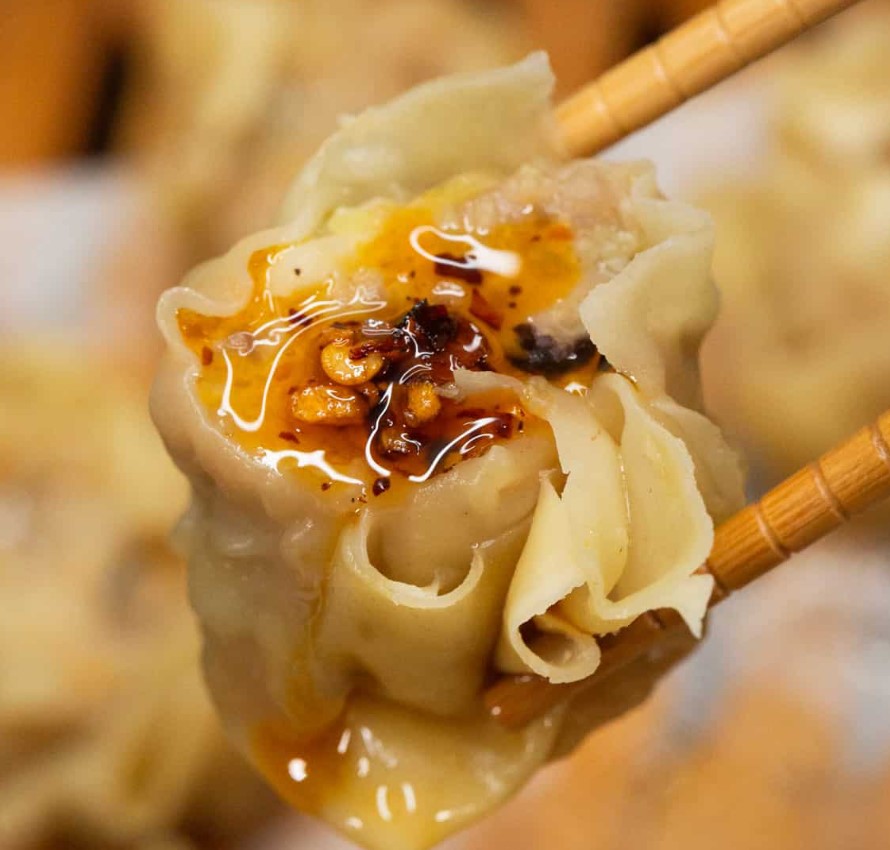Can Cats Eat Siomai?
Can cats eat siomai? One such food that might pique your curiosity is siomai, a popular Asian dumpling. This article will explore whether cats can eat siomai, potential risks, and what you need to know to keep your pet safe and healthy.
What Is Siomai Made Of?

Siomai, a popular dim sum dish, is typically made of ground meat (often pork or beef), vegetables, and shrimp wrapped in wonton wrappers and steamed or fried.
Siomai is typically made from a blend of ground meat (such as pork, shrimp, or chicken), vegetables (like onions and carrots), seasonings (such as salt, soy sauce, and spices), and wrapped in a thin dough. The filling is then steamed until fully cooked. Here’s a breakdown of the key components:
- Meat (Pork, Chicken, Shrimp): High in protein, which is essential for cats. However, certain meats may contain fat or additives that are not ideal for a cat’s diet.
- Vegetables (Carrots, Onions): While some vegetables like carrots may be harmless in small amounts, others like onions can be toxic to cats.
- Seasonings (Salt, Soy Sauce): High salt content and soy sauce can be harmful, potentially causing sodium ion poisoning in cats.
- Dough Wrap: Contains carbohydrates, which are not necessary in large amounts for a cat’s diet and can contribute to weight gain.
Can Cats Eat Siomai?
In short, no, cats should not eat siomai. While small amounts of plain, cooked meat may be safe for cats, the ingredients typically found in siomai can be harmful to them. Let’s break down the reasons why siomai is not recommended for cats:
Toxic Ingredients for Cats
Siomai is often seasoned with ingredients that are toxic to cats, such as:
- Garlic and onions: These ingredients are commonly used in siomai fillings and are highly toxic to cats. Even small amounts of garlic and onions can cause hemolytic anemia in cats, a condition that destroys red blood cells and can lead to weakness, lethargy, and even death.
- Soy sauce: High in sodium, soy sauce can lead to salt poisoning in cats. Symptoms of salt poisoning include vomiting, diarrhea, tremors, and in severe cases, seizures or coma.
- Spices and seasonings: Many spices and seasonings used in siomai, such as pepper or chili oil, can irritate a cat’s digestive system, leading to gastrointestinal upset.

High Fat Content
Siomai is often made with fatty cuts of meat or cooked with additional oils, especially if it’s fried. Cats have sensitive digestive systems, and a diet high in fat can lead to pancreatitis, a serious and painful condition where the pancreas becomes inflamed. Additionally, too much fat may contribute to obesity in cats, leading to further health issues such as diabetes or joint problems.
>>> Click Can cats eat tomatoes? Are tomato toxic to cats?
Carbohydrates and Fillers
Siomai wrappers are typically made from wheat-based dough, which contains carbohydrates. Cats are obligate carnivores, meaning their diet should primarily consist of animal proteins. They have little need for carbohydrates, and their bodies are not well-equipped to process large amounts of them. Consuming too many carbs can lead to weight gain and other metabolic issues in cats.
Processed Meats
Some siomai recipes use processed meats, which may contain preservatives, artificial flavors, and high salt content. Processed meats are not suitable for cats, as these additives can contribute to health problems such as high blood pressure, kidney disease, and digestive issues.
What Happens If a Cat Eats Siomai?
If your cat accidentally eats a small piece of siomai, it might not cause immediate harm, especially if it does not contain toxic ingredients like onions. However, it’s important to monitor your cat for any signs of distress. Here’s what to look out for:
- Vomiting and Diarrhea: These are common symptoms when a cat consumes something it shouldn’t. If this happens, ensure your cat stays hydrated.
- Lethargy: If your cat becomes unusually tired or weak, it may indicate that the food has upset their stomach or caused more severe issues.
- Loss of Appetite: Cats that refuse to eat after ingesting siomai may be experiencing discomfort or pain.
- Breathing Issues or Seizures: In extreme cases, especially if the cat has consumed a large quantity of toxic ingredients, it could experience breathing difficulties or seizures. Immediate veterinary attention is needed in such situations.

Safer Alternatives to Siomai for Cats
Instead of siomai, there are other treats you can safely offer to your cat:
- Plain Cooked Meat: Unseasoned chicken or turkey is a great source of protein for cats. Make sure it’s cooked thoroughly and served without any bones.
- Cat-Specific Treats: There are many commercial treats formulated specifically for cats that meet their dietary needs.
- Boiled Fish: Fish like salmon or tuna, without any added salt or seasonings, can be a tasty treat for cats in moderation.
Conclusion: Should Cats Eat Siomai?
In summary, siomai is not a suitable treat for cats. The risk of harmful ingredients, high fat content, and the presence of seasonings make it unsafe for feline consumption. Instead, stick to cat-safe foods and treats that cater to their nutritional needs. If you suspect that your cat has ingested siomai and shows any signs of illness, contact your veterinarian immediately.
>>> Read: Can Cats Eat Lettuce?
